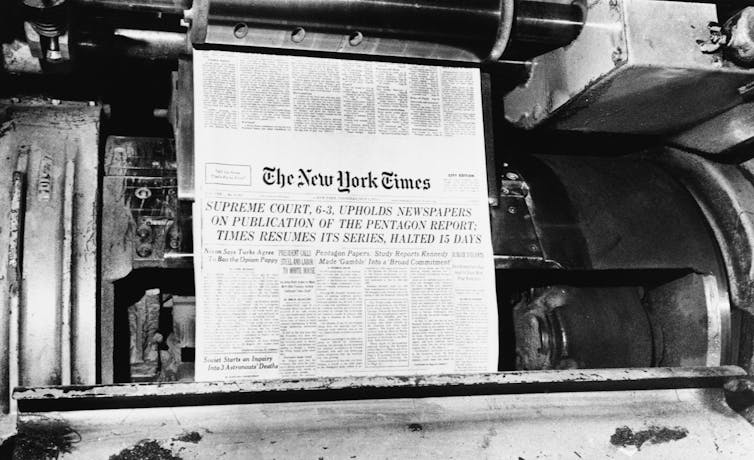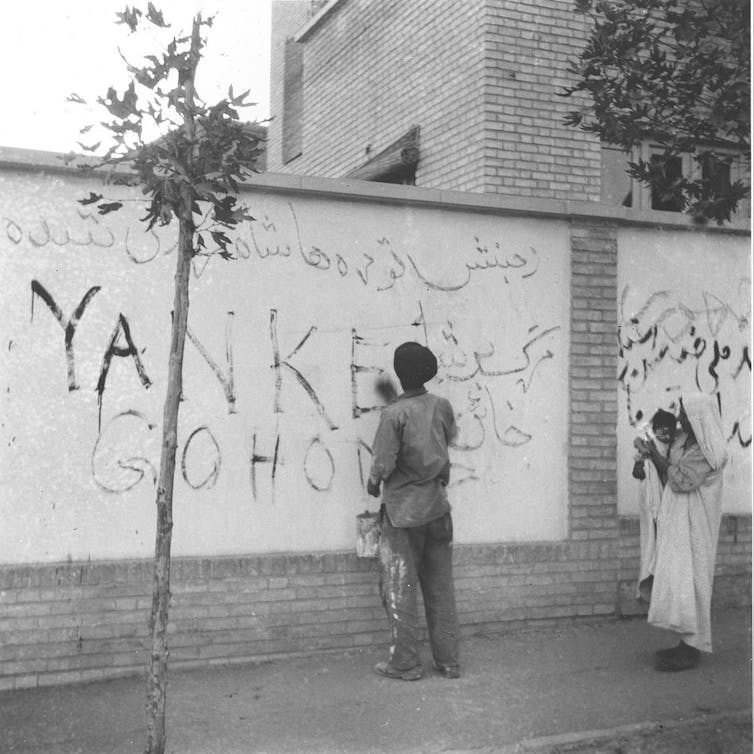by Gordon Adam
Interview transcripts from the Special Inspector General for Iraq Reconstruction, obtained by the Post after many lawsuits, show that for 18 years these same officials have told the public the intervention was succeeding.
In other words, government officials have been lying.
Few people are shocked. That’s a stark contrast to 1971, when the Pentagon Papers, a classified study of decision-making about Vietnam, were leaked and published. The explosive Pentagon Papers showed that the U.S. government had systematically lied about the reality that the U.S. was losing the Vietnam War.
The failure of the U.S. campaign in Afghanistan has been known for years. Virtually none of the U.S. goals have been met. These goals included a strong, democratic, uncorrupt central government; the defeat of the Taliban; eliminating the poppy fields that contribute to the world’s heroin problem; an effective military and police and creating a healthy, diversified economy.

A memorial procession for Sgt. James Johnston, who was killed in Afghanistan in June, passes through Trumansburg, N.Y., Saturday, Aug. 31, 2019. AP/David Goldman
The Inspector General has repeatedly documented the reality in its widely available (and widely reported) audits.
Despite this public record of failure, officials continued to trumpet political and military gains on the ground, even that the U.S. could prevail.
Privately, they have been wringing their hands.
Shades of Vietnam.
Public confidence in government was shaken by the publication of the Pentagon Papers in 1971. AP/Jim Wells
Sad history of Vietnam
The Pentagon Papers revealed that senior officials asserted in the 1960s that the Viet Cong were dying in record numbers, enemy leadership was decapitated and there was “light at the end of the tunnel." Defense Secretary Robert McNamara and his commanders, who knew the reality, continuously called for even more force from 1961 to 1969.
H.R. McMaster, in his classic study of Vietnam decision-making, excoriated the military for not bringing the truth to President Lyndon Johnson, for presenting Johnson with the “lies that led to Vietnam."
The U.S. was winning in Vietnam, until it was not. Right up to the moment diplomats in the U.S. embassy turned the lights off and were airlifted off the building’s roof.
Are comparisons justified?
Afghanistan is not Vietnam, it is said.
Former Afghanistan Ambassador Ryan Crocker argues that the U.S. must be in Afghanistan for America’s security even if reconstruction fails. Brookings analyst Michael O’Hanlon asserts that there were no lies; officials were clear the policy was in trouble. He avoids discussing the voluminous true statements The Washington Post uncovered that were not made publicly.
The U.S. was ignorant about both countries. Serving in the Obama transition in 2008, for example, I learned that Lt. Gen. Douglas Lute, the Bush-Obama Afghanistan coordinator, was carrying out a policy review process that led to a military surge.
Now we learn, courtesy of The Washington Post, that, when interviewed in 2015 as part of Special Inspector General’s “Lessons Learned" project, Lute said, “We were devoid of a fundamental understanding of Afghanistan … we didn’t have the foggiest notion of what we were undertaking."
While Afghanistan is clearly not Vietnam, Washington is still Washington.
Prevarication as policy
After more than 30 years of policy work, government experience, teaching and research, I see no mystery here. Concealment, deception and outright lies have characterized U.S. national security policy for decades - from the overthrow of democratically elected governments in Iran and Guatemala to the overthrow of Saddam Hussein and more.
The U.S. secretly plotted and carried out the overthrow of the democratically elected leader of Iran, Mohammad Mossadeq, in 1953. Here, an Iranian protests U.S. involvement in the coup. Pahlavi Dynasty, public domain
But Vietnam was the big lie, permanently exposing the gap between myth - the government knows everything better - and reality - that policy is failing.
Since Vietnam, the media and congressional, think-tank and scholarly investigators have suspected something with every intervention. To the public, the truth about Afghanistan has been clear; public opinion has been way ahead of what The Washington Post revealed.
Good reasons for lies
Lies are an integral part of national security operations. They seek credibility for government policy. They mislead adversaries, cover up mistakes and failures.
Above all, they are intended to secure public support for policy and defeat opposition at home. Political scientist John Mearsheimer has noted that governments don’t often lie to their allies and adversaries, “but instead seem more inclined to lie to their own people."
In particular, secrecy and deception convey power. As philosopher Sissela Bok says,
“Deception can be coercive. When it succeeds, it can give power to the deceiver."
Secrecy allows policies to be tweaked outside public view. Insiders gain influence arguing for new approaches to the same goals. Even the goals can shift as interventions deteriorate. The political consequences of failure may be avoided.
It is rare for an official to acknowledge failure and reverse policy; personal, political and national credibility may be at stake. President Johnson insisted that he was not going to be the “first president to lose a war." Bush, Obama and even Trump did not want to “lose" Afghanistan.
An act of political courage - like the 1960-61 Algeria departure decision of French President Charles de Gaulle, who understood France had lost its fight, is rare.
Trust broken
Why has The Washington Post series not been explosive?
In part, the Pentagon Papers broke the code of secrecy; the bond of trust between the policymakers and the American people was severed forever.
In part, the lies about Afghanistan have been in plain sight for years, courtesy of the media and the Special Inspector General.
And in part, the public is less directly engaged. The warriors are now volunteer professionals, not conscripts drawn from the general public. Casualties are one-twentieth of what they were in Vietnam.
Nonetheless, lying about military interventions carries a serious risk. The Pentagon Papers eroded public faith in the credibility of our democratic government. That erosion was later reinforced by the Watergate scandal. As Bok, the philosopher, wrote, “deception of this kind strikes at the very essence of democratic government."
British leader Winston Churchill said,
“In war-time truth is so precious that she should always be attended by a bodyguard of lies."
Deception aimed at the public and the Axis was an essential part of Churchill’s war strategy.
The Afghanistan papers reveal yet again that statesmen still believe the truth should be concealed. But the credibility of statecraft and leadership itself were seriously eroded by the Vietnam lies, weakening the fabric of democracy.
The mild reaction to lying in plain sight about Afghanistan suggests the U.S. may be well down the road to unravelling government’s credibility and our democracy altogether.
[ You’re smart and curious about the world. So are The Conversation’s authors and editors. You can read us daily by subscribing to our newsletter. ]

Gordon Adams, Professor Emeritus, American University School of International Service
This article is republished from The Conversation under a Creative Commons license. Read the original article.
.


No comments:
Post a Comment